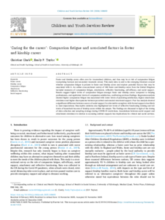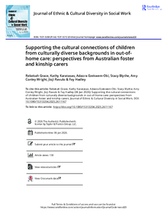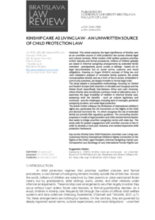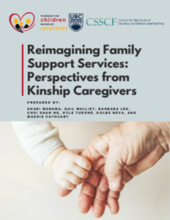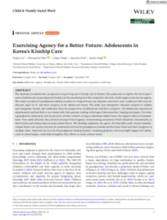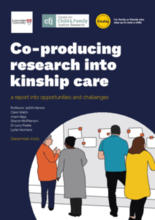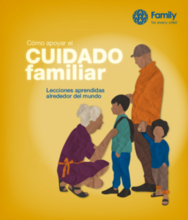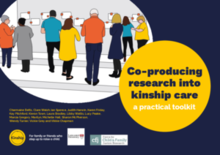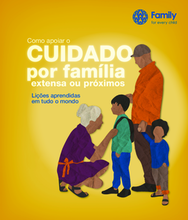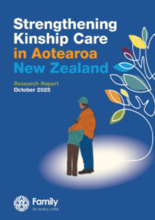Displaying 1 - 10 of 608
This study examines the presence of compassion fatigue among foster and kinship carers in the United Kingdom and explores factors associated with it using survey data from 180 caregivers. Findings indicate that carers experience higher levels of compassion fatigue than helping professionals, with greater fatigue linked to lower parenting satisfaction, attachment avoidance, and unmet expectations of social support, highlighting important implications for social and clinical support systems.
This study examines the views of Australian foster and kinship carers on the importance of cultural connection for children from culturally diverse backgrounds, finding broad agreement that culture is central to identity and wellbeing. The findings highlight challenges in delivering cultural care and underscore the need for training in cultural humility, improved cultural data collection, and collaborative cultural care planning that includes children and birth parents as key decision-makers.
This article examines kinship care as an unwritten but legally significant source of child protection law, drawing on concepts of living law to show how informal caregiving practices operate across diverse legal and cultural contexts yet remain largely invisible within formal legal systems. Using comparative analysis from Europe and the Global South, it highlights both the strengths and risks of informal kinship care and calls for a child-centred, legally pluralistic approach to better align community norms with state and international law.
This report presents findings from a 2022 consultation with kinship caregivers across British Columbia, highlighting their experiences navigating children and family services. Analysis revealed the need for recognition and respect for kinship families, improved access to consistent and equitable supports, trauma-informed and culturally grounded practices, and stronger collaboration with service providers, with caregivers’ calls for action emphasizing system improvements to sustain caregiving and promote children’s well-being.
This study explores the lived experiences of adolescents in grandparent kinship care in South Korea, drawing on interviews with 22 grandparent–adolescent pairs to examine how young people respond to adversity, build support, and exercise agency. Despite widespread experiences of parental abandonment and stigma, adolescents demonstrated resilience and intentionality, highlighting the need for stronger, coordinated services to support grandparent kinship families within Korea’s underdeveloped foster care system.
This report examines opportunities and challenges in co-producing research on kinship care, highlighting the need to involve carers as equal partners rather than treating them solely as research subjects. Drawing on a study conducted between 2022 and 2025 and accompanied by a practical toolkit, it emphasizes inclusive approaches that leverage kinship carers’ lived experiences to produce research relevant to policy and practice across all types of kinship care.
Las niñas o niños que no pueden ser cuidados por sus madres o padres a menudo viven con familiares o amigos de la familia. Este tipo de cuidado se le conoce cómo cuidado familiar.
Ten kinship carers and a research team from the charity Kinship and Lancaster University coproduced this toolkit in three fun and creative workshops.
As crianças que não podem ser cuidadas por seus pais geralmente vivem com parentes ou amigos da família. Esse cuidado é conhecido como cuidado por família extensa ou próximos.
This report presents findings from a small-scale qualitative study commissioned by Family for Every Child, examining how kinship care is understood and experienced in Aotearoa New Zealand. It explores the challenges faced by kinship carers and their support needs.

